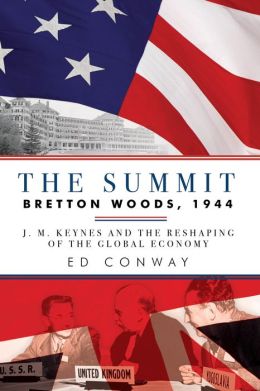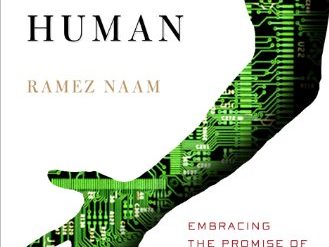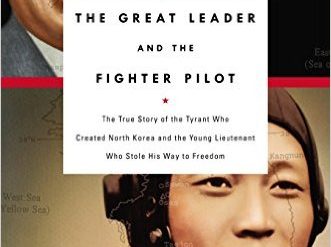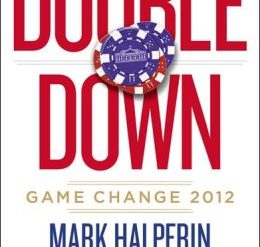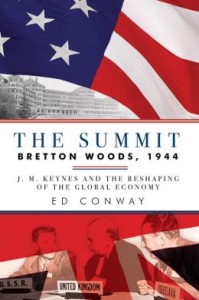
It’s unlikely that a general reader would pick up a book about Bretton Woods, and this one — with a bland main title and not one but two off-putting subtitles — would appear to be a work that only an economist could love. It’s not. The dramatic interplay of personalities that Ed Conway brings to light in The Summit is entertaining enough to please any devotee of serious historical fiction.
Estimated reading time: 5 minutes
At its core, The Summit relates the stormy relationship between two towering personalities, John Maynard Keynes and Harry Dexter White. Representing the UK, Keynes was the world’s most famous economist and a certified celebrity to boot. He is still widely regarded as the most important economist of the 20th Century. White, little known to the public before Bretton Woods and not much more so afterwards, was his counterpart heading up the US delegation on behalf of the Treasury.
Together, these two men managed against all odds to put in place the world’s first global economic system in the waning days of World War II — a system whose surviving remnants include the International Monetary Fund and the World Bank. The mechanisms negotiated at the Bretton Woods Conference in New Hampshire in 1944 never truly worked as Keynes and White intended, but they did help accomplish the overarching goal of the conference: to maintain world economic stability up until Richard Nixon upended the system in 1973 by taking the US off the gold standard.
The Summit: Bretton Woods, 1944: J. M. Keynes and the Reshaping of the Global Economy by Ed Conway (2015) 497 pages ★★★★☆
The details of these events, and of the tense negotiations that led up to them, are to be found in abundance in The Summit. Far more engaging, though — and no doubt more memorable — are the portraits Conway paints of Keynes and White. If you think people are necessarily boring if they study economics, you should read this book. It would be difficult to dream up two more fascinating people.
John Maynard Keynes was, by all accounts (including his own), a genius. Fresh out of the Versailles Peace Conference that ended World War I, his bestselling book The Economic Consequences of the Peace foresaw with rare prescience the economic turbulence of the 1920s and 30s and the likelihood of a second war. His General Theory of Employment, Interest, and Money, published in 1936, is often compared to Adam Smith’s The Wealth of Nations as one of the most consequential books of modern times.
But these accomplishments, and many more, were only part of Keynes’ story. Friends and foes alike considered him an asshole. He was crude, rude, arrogant, overbearing, and disdainful of practically everyone else except his long-suffering celebrity wife, the former prima ballerina of Ballets Russes. As a young man, Conway notes, hurrying along a outside with a colleague, he announced that he needed to urinate and, without stopping, unzipped his pants, pulled out his penis, and blithely dribbled urine all along the way between his legs — continuing to talk all the while.
John Maynard Keynes was a boor
Keynes’ often unspeakably bad behavior manifested itself under far more serious circumstances as well. For example, on several occasions, when he was dispatched by the British government to negotiate with the US, he so thoroughly alienated his counterparts that, had he not been accompanied by more temperate members of his delegation, he might have torpedoed the US-UK alliance.
Harry Dexter White, the second key man at Bretton Woods, unknown by comparison, was brilliant, too. He was also almost equally capable of alienating those he worked with. Also, to be fair, his progressive policies made sworn enemies within the State Department, which frequently complicated and sometimes undermined international negotiations. He was also a Soviet spy.
Though not a Communist, he shared the prevailing view within the American Left from the 1930s through the end of World War II that the USSR was advancing the interests of humanity. However, unlike most other progressives, White found his way into the arms of the NKVD (predecessor to the KGB and today’s FSB). Over the years, he handed over reams of sensitive documents to his handler in the Soviet Embassy — though, reportedly, nothing top secret. Following World War II, White was caught up in the Red Scare sweeping the country and driven from his government job.
It was inevitable that these two personalities would clash — the hard-driving son of poor Jewish immigrants and the Cambridge-educated son of an esteemed economics professor and a social reformer.
Ed Conway, a journalist, is the Economics Editor of Sky News, the 24-hour TV news service in the UK controlled by Rupert Murdoch’s News Corporation. The Summit is Conway’s second book.
For related reading
This is one of the books I’ve included in my posts, Good books about finance and economics and Gaining a global perspective on the world around us.
You might also enjoy 5 top nonfiction books about World War II.
You may enjoy browsing through The 10 best novels about World War II and 20 top nonfiction books about history.
For more good books on the history of the US, see Top 20 popular books for understanding American history.
Enjoy reading general nonfiction? Here is my list of The 10 most memorable nonfiction books of the decade.
And you can always find my most popular reviews, and the most recent ones, on the Home Page.

